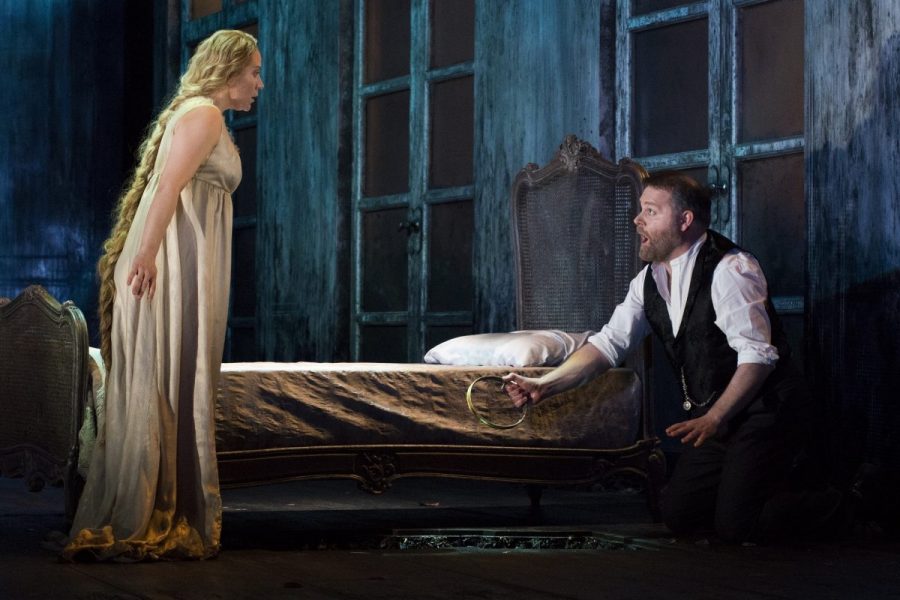Scottish Opera are in town this week at the Festival Theatre, performing Debussy’s Pelléas and Mélisande. Composed in 1902, Debussy’s opera was heavily influenced by Wagner, but also has elements of Puccini in it. It is beautiful music, and Scottish Opera’s orchestra, under the baton of music director Stuart Stratford, play it exquisitely: they are really the stars of this evening.
Firstly, a word of warning to opera virgins: this is not the opera to go to early in your career. Yes, it is beautiful, but it is very slowly paced, particularly in the first act, and it is over 3 hours long. It also lacks the big arias of Verdi or Puccini, or the fun of Rossini operas.
For more experienced opera goers, this is a very rewarding evening, as the enthusiastic audience response shows tonight. The opera is directed by Scotland’s David McVicar, who is one of the leading opera directors in the world. It is a visually ravishing production, loosely based on the paintings of Danish artist Vilhelm Hammershøi, and has a very clever set, which moves from the dark rooms inside a castle, to the dark forest outside.
The singing is excellent overall. In particular, Carolyn Sampson’s anguished Mélisande captures our hearts, as she suffers the emotional and physical brutality of her husband, Golaud, sung ably by Roland Wood. Andrei Bondarenko, the fine Ukrainian singer, sings Pelléas very well, although his French isn’t perfect, but at least the surtitles are clear. Above all, Arkel (King of Allemonde) is sung superbly by Alastair Miles.
This is an opera which repays study, and the programme notes are excellent in their discussion of the musical and psychological background to the opera, and the visual inspiration for the production. So do go to Pelléas, but be warned: it isn’t a barrel of laughs, it is long and slow to develop, but in the end it is musically rewarding.
